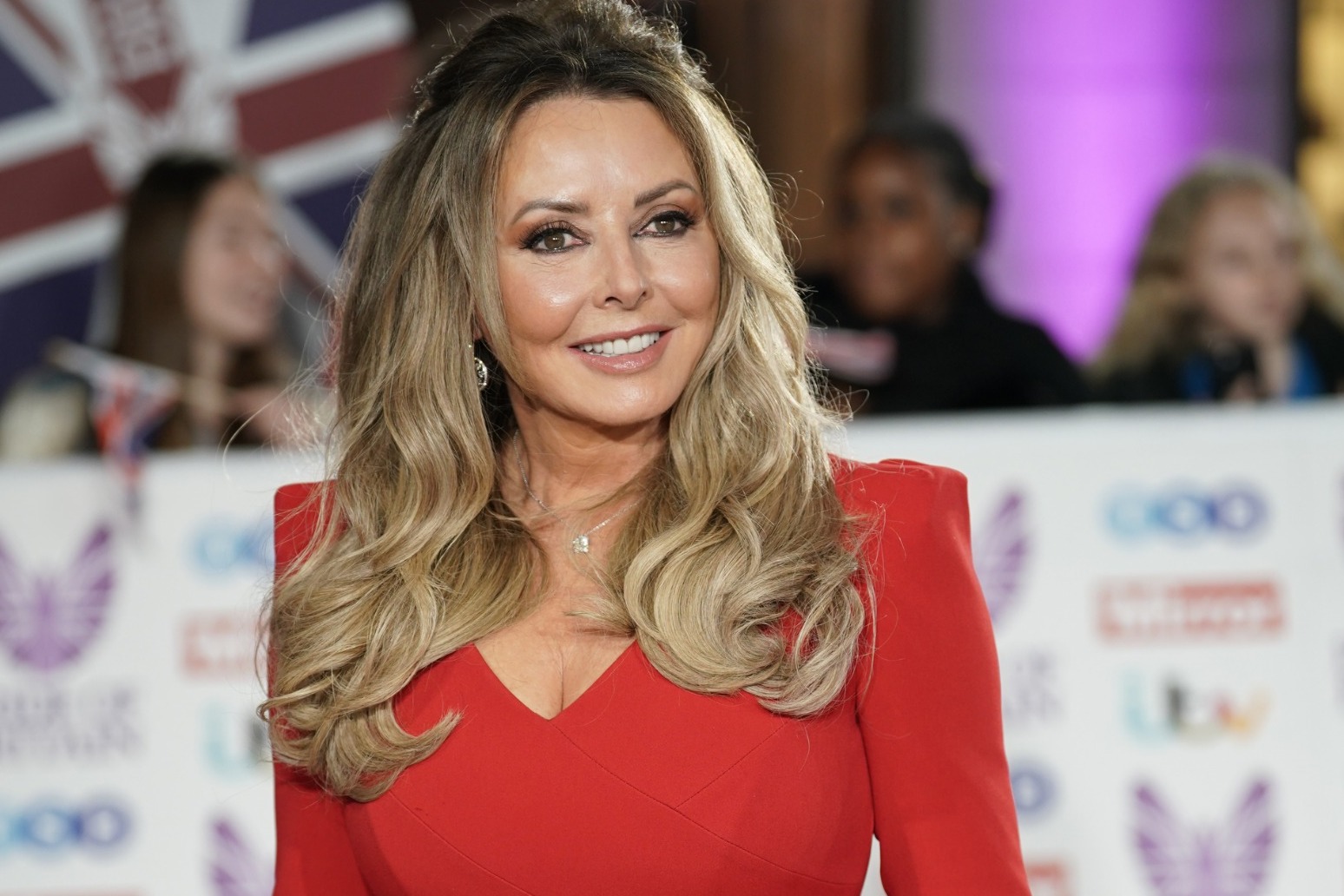
Carol Vorderman calls out ‘controversial decisions by BBC management’
Carol Vorderman has taken aim at “controversial decisions by BBC management” following the Huw Edwards scandal.
Carol Vorderman has taken aim at “controversial decisions by BBC management” following the Huw Edwards scandal. The former Countdown star, 63, was given a standing ovation after she delivered the Alternative MacTaggart lecture at the Edinburgh TV Festival on Friday. She described herself as having been on thousands of TV shows over decades, “sacked by the BBC – twice – pain in the arse, lover of parties, post-menopausal”, adding she was standing “in anger and without apology” at the media event. Vorderman claims she was “sacked” by the corporation with “no conversation to be had” after it introduced new social media guidelines she did not agree with. She said “trust in the BBC is declining”, which she said was understandable because of the way “people feel after so many controversial decisions by BBC management”. Vorderman referenced former news presenter Edwards, who pleaded guilty to making child sex abuse images following him resignation from the BBC in April. The corporation was aware police had arrested him in August, during his his suspension over an unrelated matter. She cited Match Of The Day host Gary Lineker’s tweets about the previous government’s immigration policy which lead to him briefly being removed from the programme, as well as the departure of BBC chairman Richard Sharp over questions about the former Goldman Sachs banker’s role in then-prime minister Boris Johnson getting an £800,000 loan guarantee. Vorderman also called television “a mess”, citing Ofcom figures that she said showed the “current decimation of broadcast television”. The media regulator’s research, published in July, found that less than half of young people watch live television in the average week. Viewers aged between 45 and 54 have also begun to turn away from linear television, with viewing rates in the age group falling from 89% to 84% in a single year. Vorderman, who now hosts a Sunday show on LBC radio, added: “Politics, arrogance, snobbery, leads to disillusionment. They are all inextricably linked. “The rich and powerful corrupting politics, the upper-middles taking broadcast for themselves, the increasingly absurd right-wing newspaper headlines being promoted by political programmes. What has this got to do with class? Everything, literally everything. “After 14 years of austerity and lying by the privileged political class, this country is in an absolute mess and the TV industry must accept part of the responsibility for that too, including the riots.” The maths expert, who grew up in poverty in Wales, said “working-class people feel they are not represented, their situation is not represented, the lack of opportunities and lack of money and jobs is not represented”. Vorderman also said: “Our industry is an industry of snobbery: regional snobbery, class snobbery and educational snobbery, and don’t even get me started on the political issues.” She also said working-class people have increasingly turned to social media. Vorderman added: “Social media – no longer the new kid, more like the badly behaved uncle – has changed our society and its rules, and it is decimating our industry as we know it, and with good reason. “What it gives everyone, in towns and cities outside the wealthy South East, the opportunity to do, is to see and hear views they recognise, in language they recognise. “No longer is there the need to go through the filter of a producer, or a commissioning editor, or someone who has never been to my town or my city or my region, who has no idea how people like me live and the worries we have.” She cited research from the Creative Industries Policy and Evidence Centre, which found under 10% of people from the TV, video, radio and photography sectors were from working class backgrounds last year. Vorderman also said Reform UK leader Nigel Farage’s appearance on ITV celebrity competition show I’m A Celebrity… Get Me Out Of Here! contributed towards “normalising” his views. “Nigel Farage on I’m A Celebrity, ‘oh Nigel is just Nigel, nothing to do with me’ – what planet is that person on who thinks that?” Vorderman asked. Earlier in the festival, ITV managing director Kevin Lygo defended Mr Farage’s time on on the show. “The audience is smart enough to make up their own mind. Honestly, it wasn’t meant to offend anyone,” he added. Vorderman also said that “bad actors are manipulating the fact that mainstream media may not speak the language of the working class”. She added: “I hope the whole of this year’s TV festival has really made you consider your own perceptions and that you ask yourself questions about class and opportunity, and the responsibility you hold in the future of this country.” Vorderman has increasingly turned to political activism, including criticising the previous Conservative government, and is due to publish her book Out Of Order: What’s Gone Wrong With Britain And One Woman’s Mission To Fix It, in September. Following the session, she also said TV was in a “death spiral”, and called on executives “to get out more” in the regions during an interview with Loose Women star Charlene White. Vorderman also said she has become increasingly outspoken, and does not agree with the “unwritten celebrity rule book” of being nice to newspapers. She added: “I was just frustrated because having been on television all those years, I believe that there were few voices on television speaking the truth as I saw it, which was about how disgraceful it was and so on.”
Published: by Radio NewsHub